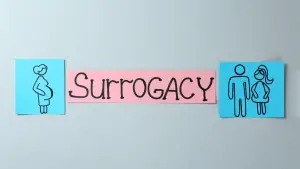Sexual harassment is a plague that has silently been thriving under a culture of silence in Nigeria. From university lecture halls to corporate offices, marketplaces, and even the highest levels of government, countless individuals especially women have been victims of this heinous act. Yet fear of societal stigma and failed institutions discourage people from speaking out. Victims are of them powerless as sexual harassment has taken root in different sectors.
In corporate organizations, women are forced to give sexual favors in order to get promotions or employment and refusal is always met with selective frustration in workplace.
In universities, the sex for grade system is still very much active even though there are strict laws against it. Lecturers take advantage of students who have little choice but to comply or risk failing courses. On the streets, harassment has become normalized, with women enduring catcalling, groping, and unsolicited advances daily.
Despite the frequency of this act, most cases go unreported. Victims who have seen no justice being done in the past go silent out of fear of humiliation. The individuals who have the courage receive no justice and risk losing their jobs, academic setback, lawsuits and as far as their lives with the perpetrators going unpunished.
Cultural and Social Barriers to Justice
Societal norms and cultural expectations further silence victims of sexual harassment. Questions like why were you wearing that or why were you alone with him are often asked, shifting the blame from the perpetrators to the victims themselves causing them to go silent.
Even families and communities urge their loved ones to remain quiet in order to protect their reputation thereby encouraging silence. This deeply rooted stigma reinforces a dangerous culture where harassment is tolerated, and speaking up is discouraged.
The result is a cycle where abuse goes unchecked, and survivors suffer in silence.

The Lasting Impact on Victims and Society
Sexual harassment leaves lasting scars on its victims. Many of which become closed off and socially awkward. The trauma doesn’t end with the incident—it lingers as anxiety, depression, and post-traumatic stress. Some of these victims end up abandoning their dreams, jobs and dropping out of schools not out of lack of potential, but because the environments that should nurture them have become a nightmare.
On a broader scale, society misses out on the brilliance and revolutionary change victims could bring to the world. The economy loses valuable contributors, and institutions miss out on diverse perspectives and innovation.
It is even worse when perpetuators of the sexual harassment act are not brought to book. Innocent victims suffer as they continue on a spree of this sick act. When perpetrators are not held accountable, it normalizes abuse. It tells the next offender that they too can get away with it and silences the next victim before they even speak.
Legal and Institutional Failures
Despite the existence of laws like the Violence Against Persons Prohibition (VAPP) Act and the Sexual Harassment in Tertiary Institutions Prohibition Bill, enforcement remains unfortunately weak. Legal frameworks without action are hollow promises, and many victims have no faith in the system meant to protect them. Institutions often prioritize reputation rather than upholding justice. They shield sexual harassment offenders while victims are left vulnerable and unheard.
The UNILAG sex-for-grades scandal, exposed by a BBC investigation, is an example of how deeply rooted the issue of sexual harassment is. Even after the public traction gained, the offenders resumed their positions.
The recent allegations made by Senator Natasha Akpoti-Uduaghan against Senate President Akpabio shows how even high profile individuals struggle to be heard. If even the powerful can be silenced, what hope remains for everyday Nigerians? Until justice systems become both accessible and impartial, sexual harassment will continue to thrive in silence.
Breaking the Silence and Taking Action
The fight against sexual harassment in Nigeria must begin with breaking the silence that protects it. For too long, victims have been muted by fear, stigma, and institutional neglect. But silence only strengthens the abuser. To end this crisis, a collective, nationwide effort is required—one that begins with listening to survivors and creating safe spaces where their voices are heard and believed.
Academic institutions and workplaces must implement and enforce clear anti-harassment policies. Offenders must be held accountable without delay or favoritism, and victims must be protected from retaliation. Law enforcement officers and judicial officials need specialized training to handle such cases with sensitivity and urgency.
Social media campaigns like #MeToo and #EndSGBV has sparked vital conversations, but awareness must now translate into action—especially at the grassroots. Parents, teachers, religious leaders, and community influencers must speak up, educate, and challenge harmful cultural norms.
Most importantly, survivors must be empowered, not shamed. Justice delayed is justice denied—but justice denied entirely is a national failure. The silence must end. The time to act is now, not just for the sake of today’s victims but to protect future generations from the same cycle of abuse and neglect.
Agencies and Collective Action
Fighting sexual harassment in Nigeria requires unified efforts. Agencies like the National Human Rights Commission (NHRC) and National Agency For The Prohibition Of Trafficking In Persons(NAPTIP) work alongside NGOs such asWomen at Risk International Foundation (WARIF) and the Mirabel Centre to support survivors through legal aid, counseling, and advocacy. Yet, their efforts need greater public awareness and institutional backing. Schools, offices, and communities must enforce zero-tolerance policies. Only through collaboration, education, and firm legal enforcement can we break the culture of silence and hold perpetrators accountable. Justice must be accessible to all—now more than ever.
Conclusion
Sexual harassment in Nigeria persists because silence, weak systems, and cultural norms protect abusers. To end this cycle, we must amplify voices, enforce laws, and support victims without judgment. Justice must not depend on status—every survivor deserves to be heard and believed. When society stops tolerating abuse in any form, true change can begin. It’s time to break the silence, demand accountability, and create a safer, more just Nigeria for all.






